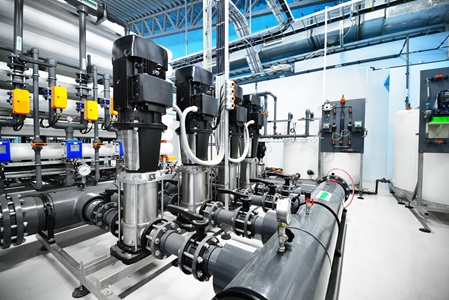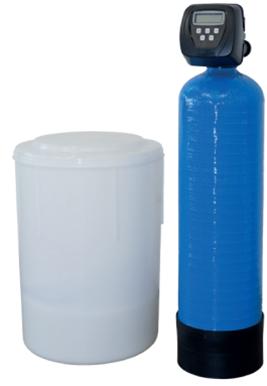water treatment
All our plants are robust industrial designs and are characterized by a simple system structure. The modularity allows a flexible application and an uncomplicated extension if required.
Our processes and plants make it possible to implement even complex requirements economically, both stationary and mobile.
The process used depends, among other things, on the type of contamination of the water and the target quality.
Membrane plants
Typical applications (excerpt):
Seawater desalination | Desalination of boiler feed water | Industrial wastewater treatment | Drinking water filtration | Process water treatment | Water recycling | Separation of organic solutions | Active substance enrichment | Filtration of beverages | Oil-water separation of stable emulsions | Fine particle separation
In our membrane plants, the water to be treated is fed under pressure onto a membrane (selective permeable body). Depending on the degree of fineness of the membrane filters, different components of the water are retained in this way - without the need for chemical additives. Our membrane modules are extremely low-maintenance and require no regeneration chemicals. They are therefore highly efficient and environmentally friendly.
More… Less…Product information
Removal of salts up to 98%
Removal of organic substances up to 90%
Energy recovery
The membrane modules used allow user-friendly and low-maintenance operation without regeneration chemicals. Depending on the application, we use different materials such as plastics or stainless steel.
Option examples: Permeate recirculation, purification system (CIP), blending system, constant control inlet, other materials, antiscalant dosing.
Ion exchangers and water softening
Typical applications (excerpt):
Water softening | Seawater desalination | Desalination of boiler feed water | Industrial wastewater treatment | Drinking water filtration | Cooling water | Process water treatment | Water recycling | Process technology, e.g. in the chemical industry | Nitrate removal | Removal and recovery of heavy metals
When we speak of "water" in general, we usually mean water that contains visible or non-visible components in addition to water molecules. Thus, dissolved ions, minerals, salts and gases are found in water, which together determine the total salt content as well as, through the various charges, the electrical conductivity of the water. An ion exchange material is able to absorb the desired ions (positively or negatively charged particles) from the surrounding medium and replace them with other ions.
More… Less…Product information
Our ion exchangers are used in particular in the process industry. Depending on the requirements, different processes and materials can be realized. Plants based on hygienic design principles are of interest to the food and pharmaceutical industries. Therefore we plan and build the plants according to your needs.
We deliver the plants pre-assembled as standard. This allows fast and uncomplicated commissioning. Containers, skid plants or on-site assembled plants of different sizes are part of our scope of supply.
Fixed bed filters: activated carbon and sand filters
Typical applications (excerpt):
Wastewater | Landfill leachate | Boiler feed water | Drinking water | Groundwater | Well water | Industrial wastewater | Gas purification | Odor removal | Landfill/biogas | Decolorization e.g. of foodstuffs | Taste improvement | Selective filtration e.g. in the chemical industry
Fixed bed filtration with sand is used for particle filtration. When filled with activated carbon, chemical contaminants such as pigments or hydrocarbons are also removed by adsorption on the highly porous material.
More… Less…Product information
Backwashable modular systems
Pressureless or with pressure system
Also available as mobile system
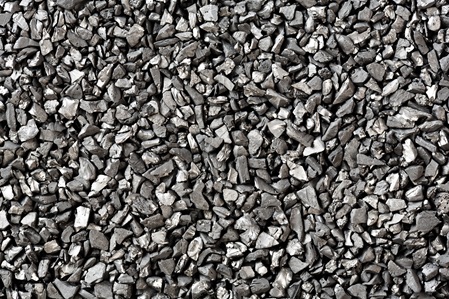
Splitting plants
Typical applications (excerpt):
Industrial wastewater treatment | Process water treatment | Water recycling
In this chemical-physical wastewater treatment, a chemical reaction leads to the precipitation of previously poorly soluble substances after the addition of precipitants. This results in flocculation of the substance to be removed, which can then be removed from the water by means of filtration. Even heavily polluted wastewater can be reliably cleaned using this method.
More… Less…Product information
Due to the modular and compact design, our plants can be installed in a very space-saving way. Due to the modularity and standardization, our plants are economical and reliably master the hard industrial routine. Our processes are:
- Precipitation
- Flocculation
- Sedimentation
- Neutralization
- Adsorption
- Oxidation
- Combinations of different processes
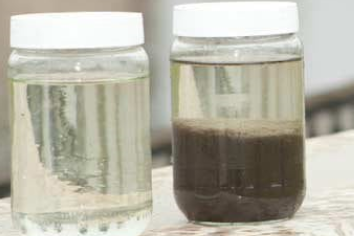
Mobile drinking water purification
Our mobile water treatment plants purify heavily polluted surface water or seawater. They are used to produce vital drinking water, for example in civil defense and disaster control or for private provision.
In the course of environmental disasters, severe weather events or technical failures of the water network, private households regularly find themselves in the unpleasant situation of not having clean water. Mobile water treatment plants are the temporary solution and provide valuable drinking water. Private precautions and a comprehensive equipment of the disaster control with plants for drinking water treatment are essential. We can provide you with tailor-made plants for your purposes.
More… Less…Product information on our current systems is available on request!
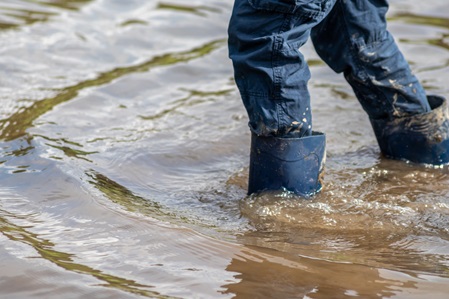
iph Hähn GmbH
Konrad-Zuse-Str. 9 | DE-53560 Vettelschoß | fon +49 2645 977 2626 | info@iph-haehn.de | www.iph-haehn.de
Images on this page from top left to bottom right: Arpon - stock.adobe.com; iph Hähn; Alex Stemmers - stock.adobe.com; iph Hähn; smuay - stock.adobe.com; iph Hähn; sunakri - stock.adobe.com


